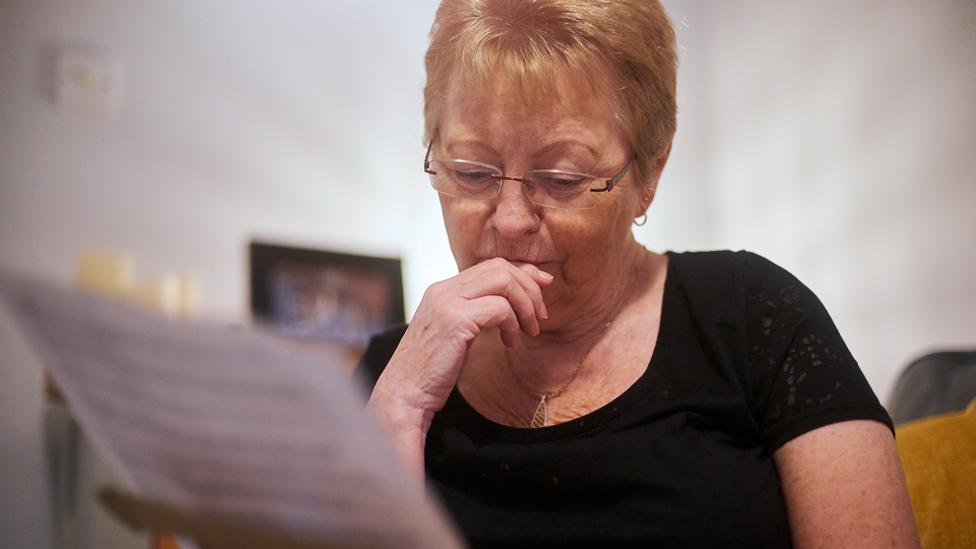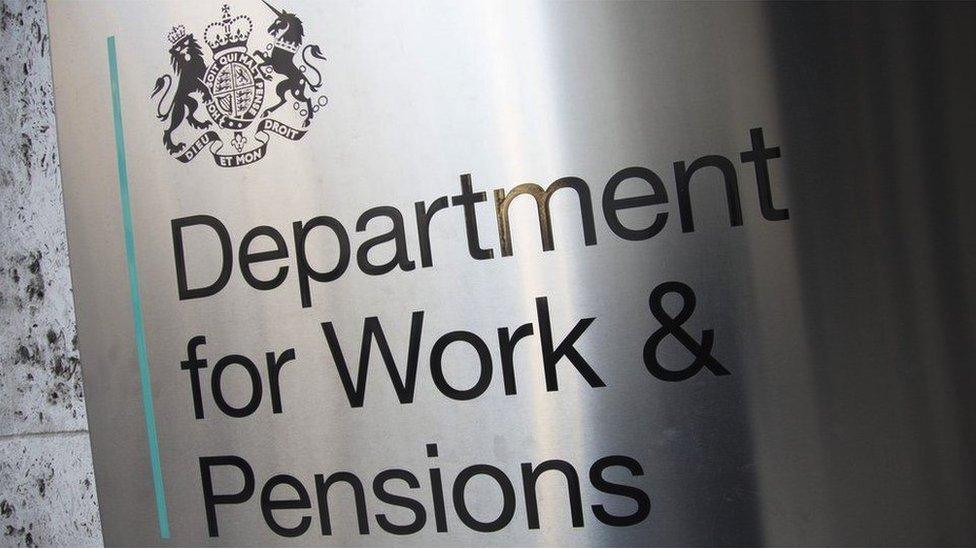Pensions: Millions receive wrong amount 'for decades'
- Published
- comments

Millions of people have received the wrong pension for decades because of government IT failures, the BBC has learned.
The errors, which are understood to have been known about since the 1990s, have not been made public until now.
A former pensions minister described the scale of the problem as "truly mind-blowing".
The Department for Work and Pensions (DWP) says it is investigating remedies.
Official analysis published last month suggests 23% of pensioners were underpaid, while 17% were overpaid.
Some people have been both overpaid and underpaid in different years, with the vast majority of errors worth one or two pence per week.
In 2002, it was decided by DWP officials that it would be too complicated to fix the problem, and a solution has still not been found.
'Mind-blowing' errors
Sir Steve Webb, who served as pensions minster between 2010 and 2015, said he'd never been alerted to the problem.
"The scale of these errors is truly mind-blowing," he told the BBC.
"Although the absolute size of the errors is typically small, the number of people potentially affected is huge. More worrying is the total lack of transparency.
"It beggars belief to hear that a government department could simply decide that it was acceptable to pay the wrong rate of pension for decades, but feel under no duty to tell Parliament or the public.
"If the DWP has sat on this secret for decades, it makes you wonder how many other things simply get brushed under the carpet."

The problem centres on the Pension Strategy Computer System, and its inability to accurately uprate an element of the State Pension called the Graduated Retirement Benefit.
The ageing computer system, which MPs have described as "not fit for purpose", was introduced in the 1980s.
It was due to be shut down in 2020, but has been kept going on a temporary basis.
In 2021, the National Audit Office found that problems with the system had separately led to 134,000 people who had claimed their state pension before April 2016 not receiving their full entitlement. The average underpayment was estimated at about £8,900.
This problem, which mainly affects widows, divorcees and women who rely on their husband's pension contributions for some of their pension entitlement, is expected to cost the government £1.05bn.
"It is worrying that the DWP's IT systems have not kept pace with the demands on them," said Labour MP Sir Stephen Timms, chairman of the Work and Pensions Select Committee.
"A great deal of money has been spent on the Universal Credit programme - which is a good system - but other benefits like the state pension are relying on ageing and creaking systems."
In a statement, the Department for Work and Pensions said the errors were "decades old" and that "successive governments have not corrected this".
"A decision was made in 2002 not to make changes or corrections given the system's complexity and minimal impact on individuals, until a new computer system was introduced. The Department is assessing the scale of this issue and investigating potential remedies," a spokesperson said.

FIGHT FOR YOUR RIGHTS: X-Ray returns and they've got your back
SPOTLIGHT ON THE NHS: Is Covid masking a bigger problem with our health service?
